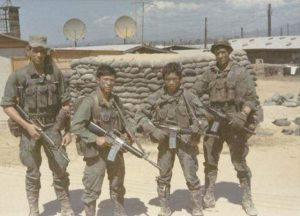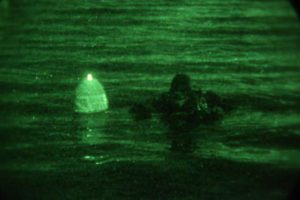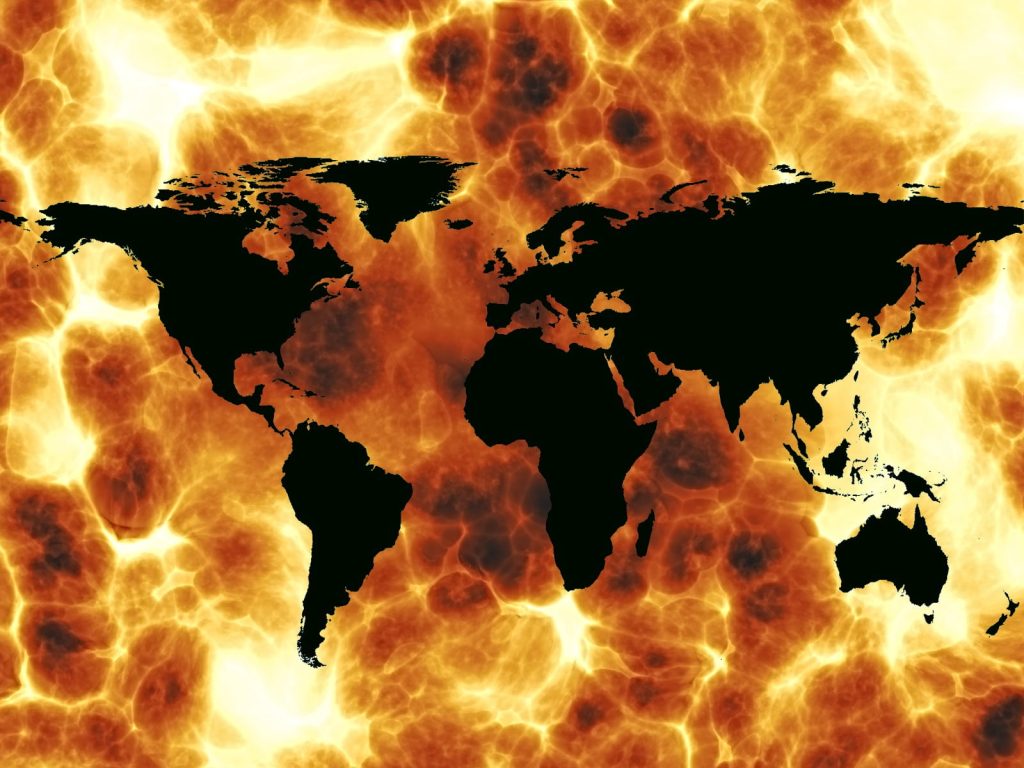
There are wars, and rumors of wars, all over the world as 2024 dawns. Russia and Ukraine continue to bludgeon each other relentlessly. Israel’s war against Hamas grinds on, threatening to expand into the southern territory of Lebanon under the control of the Iranian-backed Hezbollah terror group. To the south and east, the Houthis in Yemen are waging a “pin-prick war” that has diverted some 12% of the world’s commercial shipping, forcing extensive delays and threatening to log-jam global trade on a scale that rivals the dislocations of the COVID pandemic, as their backers in Iran rattle their own sabers and threaten the oil export structure of the Persian Gulf.
Across the Red Sea from Yemen, wars rage in Sudan and Ethiopia, while Ethiopia’s own actions threaten wars with Eritrea and Somalia. To the north, Egypt and Jordan – for different reasons – are on the verge of internal collapse. Throughout the rest of Africa, nations struggle with internal, interminable and seemingly unsolvable issues, with many states facing continued attacks from radical jihadist militias. In Myanmar, the military government is clinging to power by its proverbial fingernails. In South America, Venezuela continues to threaten the annexation of Guyana, while Bolivia and Ecuador are the new battlegrounds in the war of the drug cartels.
Naturally, with all of these long-running – or suddenly appearing – conflicts, most of them remote, obscure and obtuse to outsiders, there are other conflicts that get lost in the shuffle…but those conflicts are no less important; in fact, many of them are not petty in any way, with the victims not simply being on the short end of the stick, but who were actively abandoned to the whims of ‘realpolitik’.
The war in Kurdistan is just that kind of conflict.
The wars and depredations inflicted on the Kurdish people for over one hundred years have largely been caused by the West, primarily Britain and France…but the United States hasn’t helped. And that war continues, not only against Syria and Turkey, but against Iran.
While the Kurdish nation has been noted as a separate and distinct people since the 11th Century, when the term “Kurdistan” was noted by the Seljuk Empire, it was only after World War 1, and the last, vile gasp of debased European imperialism – the Sykes-Picot Agreement – that the real agony began.
Neither Kurdistan nor its people were given more than lip service by Britain and France. Bolshevik (Communist) Russia repudiated any Russian claims associated with the agreement after the revolution that unseated the Tsar, as they had far more pressing problems. The signatories, channeling previous agreements covering African and Asia, cavalierly split what they, themselves, knew to be ethnically Kurdish areas between themselves to rule. While subsequent, limp-wristed treaties “graciously” allowed for the possibility of a Kurdish state (despite several Kurdish states being organized from 1918 to 1930), the European powers threw up their hands in 1923, and washed their hands of the Kurdish areas, for the most part, with the Treaty of Lausanne, which made no mention of the region at all, condemning the Kurdish people to be split between what is now Turkey, Syria, Iraq and Iran. The Kurd’s only ally of significance was Winston Churchill, who argued for a separate Kurdish state, but his political influence in the 1920’s was very limited, compared to what it would become in later decades.
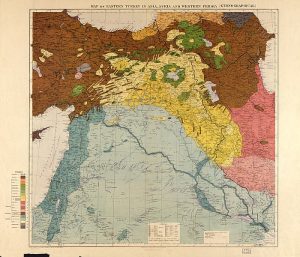
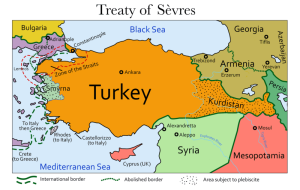
But the Kurds wouldn’t give up.
The Kurds sent a delegation to the San Francisco Peace Conference of 1945, which would form the United Nations, to argue for an independent state; they were, of course, refused. But, armed Kurdish groups continually waged low-level guerrilla wars against the states they had been relegated to; the wars’ ferocity depended on how intense the ruling government’s programs to suppress Kurdish culture were at the time.
However, this would occasionally swing into full-on war crime territory, as happened in the Halabja Massacre of 1988, when the Kurdish village was attacked with lethal “war agent” chemicals weapons, primarily mustard gas, but also with a mix of nerve and blood agents. It is generally assumed that Saddam Hussein’s government was responsible for the attack, although allegations have long been made against Iran.
When the 1991 Persian Gulf War ended, US President George H. W. Bush made casual, off-hand remarks, that left many in Iraq – including the Kurds – believing that if they rose up to overthrow Saddam Hussein, they would get at least some help from the United States. Unfortunately for them, the Kurds in the north and Shi’a Iraqis in the south read far too much into the first Bush’s words, and were left stunned (assuming they lived) then they rose up…and the United States barely lifted a finger, seemingly completely surprised that the subject peoples of a brutal dictatorship might actually have the gall to rise up in armed revolt against said brutal government.
The absolute cheek of little people.
Shamed into doing something, though, the Bush administration launched “Operation Provide Comfort” to protect Kurdish refugees fleeing the Iraqi Army units not destroyed fighting the United States and its allies in Kuwait.
Quite unintentionally, this would be the first real break for Kurdish autonomy since 1918. The strict limiting of Iraqi military abilities against the Kurds left the northern people able to organize in safety, and begin building a formal military organization, the Peshmerga, from scattered guerrilla forces. While remaining in “recognition limbo” – without formal recognition as a sovereign state – the Kurdish authorities could not legally purchase military weapons on the open world market, forcing them to develop a “cottage industry” for making weapons, alongside reusing weapons captured from Iraqi forces when the government in Baghdad drags its feet on providing any, buying weapons on the black market and the occasional under-the-table crumbs offered by a scattering of Western states.
With the overthrow of Saddam in 2003, and the resulting upheaval in the aftermath, this organization became much more formalized and professional, at least compared to where it had been. It still has serious internal issues, a reflection of thirty-odd years of disordered and fragmented political organization, leading to a fragmented command and operational structure.
Kurdistan deserves better, not least because they have carried the United States water in the region with little return for their money. Kurdistan, from 2003 onwards, made themselves into a safe area for the US and its allies, doing what it could against Al Qaeda-aligned jihadist groups, for very little return.
Kurdistan remains split between four nations, with no prospect of real help from anyone else. Syria, still embroiled in its decade-and-a-half long civil war, has no intention of allowing its Kurdish regions to leave the country; the autonomous region known as “Rojava” formalized in 2018 is nothing more than a convenience for Bashar al-Assad’s government in Damascus.
The United States is unlikely to attempt to rein in the extreme excesses of Turkey’s operations in its own Kurdish areas, nor the northern parts of Syria and Iraq. This is because Turkey, as a member of NATO, is vital to European security…even as the Turkish state keeps expanding its influence throughout the world.
Likewise, Iraq is not about to allow its own Kurdish areas to actually leave, as that would remove a large oil-producing area from the country, fundamentally weakening the shaky government in Baghdad.
And then – there is Iran.
The mullahs in control of Iran view its Kurdish population as a useful foil that allows them to accuse any number of nations of trying to undermine them, while occasionally killing people wholesale to intimidate all of its ethnic minorities.
Now, however, with wider wars exploding throughout the region, as well as the rest of the world, the faint glimmer exists that the Kurds may soon have a chance to finally establish themselves as an organized state. The chances are remote, and it will be neither easy nor bloodless, but the chance is there.
The question is: Can the Kurd’s leadership come together to capitalize on the opportunity?
If they can, the United States should help make it happen – that’s not “imperialism”. That’s helping your actual friends, who have sacrificed to help you in the past, with no prompting.






